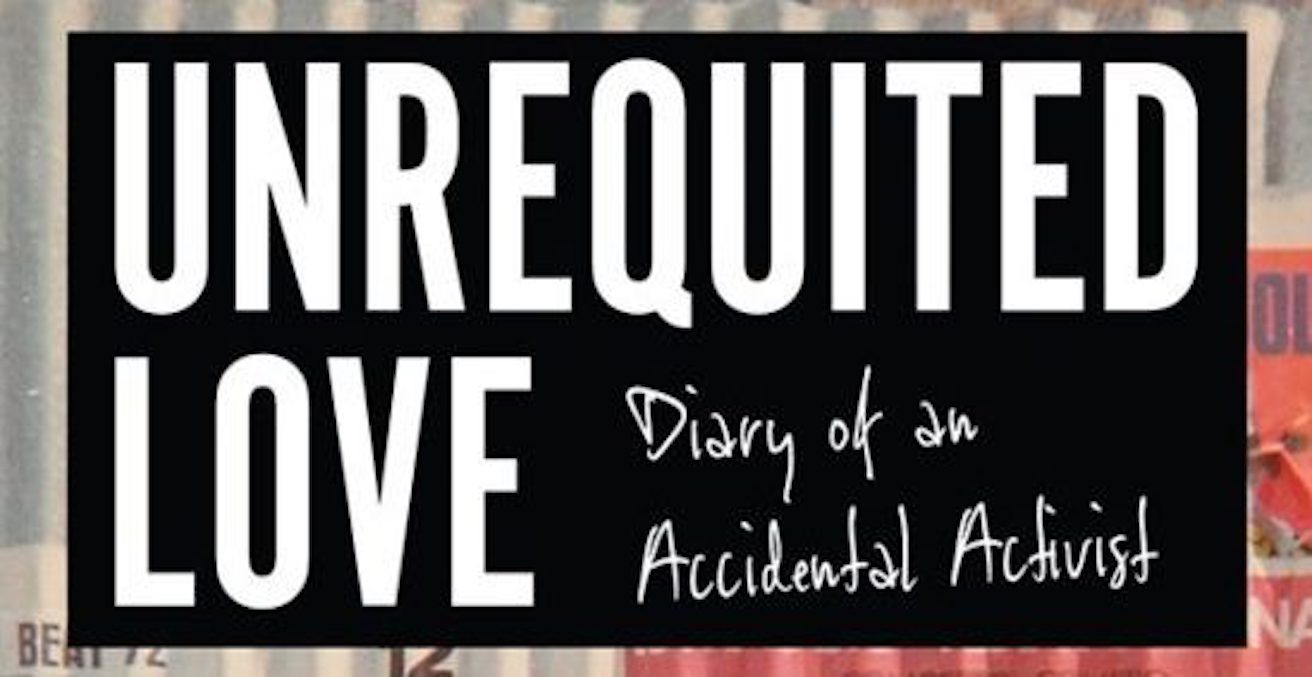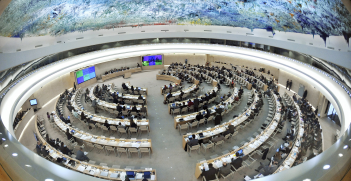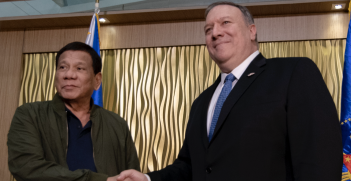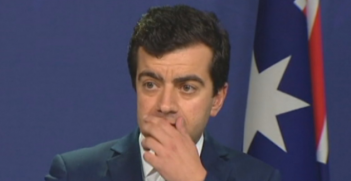Unrequited Love: Diary of an Accidental Activist

Denis Altman’s new book, Unrequited Love: Diary of an Accidental Activist, accounts for his time in the US and draws comparisons between the American and Australian political state.
When I began the index for my new book, Unrequited Love: Diary of an Accidental Activist, I realised that Donald Trump so dominated the last few years that it was unnecessary to index him.
The “unrequited love” I refer to is my long love affair, with the United States, which began as a graduate student in the 1960s. In some ways this parallels Australia’s long love affair, epitomised in relations between Prime Ministers Holt, Howard and Gillard and Presidents Johnson, Bush and Obama. Now another Prime Minister is heading on the pilgrimage to Washington. Scott Morrison will be feted by Donald Trump, with only the second state dinner of his Presidency.
The most recent Lowy Institute Poll reveals most Australians have a strong distrust of President Trump, while there is equally strong support for the American alliance. Indeed, despite Trump our preoccupation with the United States seems if anything to have increased since his election.
For the past sixty years the idea that the United States was our primary ally and protector has been accepted by successive governments, apart from some uneasy wavering during the Whitlam years. This has led Australia into a series of unhappy military commitments, most notably in support of George W Bush’s invasion of Iraq.
While the Australian government has deliberately not followed the U.S. on a number of issues, such as withdrawing from the Paris Agreement or the United Nations Human Rights Council, it remains committed to a view of the American Alliance which was forged in the aftermath of World War II.
Too often we seem to follow American leads without any consideration of our regional position. One example was the Prime Minister’s suggestion of moving the embassy in Israel to Jerusalem, which seems to have been quietly forgotten. Another may be forthcoming involvement in military patrols of the Persian Gulf, even though few of the United States other allies have signed up.
The tide of American politics has its impact here. My hunch is that had Hillary Clinton won the 2016 election Malcolm Turnbull would not have been ousted as leader of his party; Trump’s positions on climate change and immigration have strengthened the right in the government parties and given oxygen to racist language which was previously unacceptable. American influence and money is important in supporting the gun lobby and the religious right, even if it receives little attention as against concerns about Chinese government interference.
Of course, Australian governments are very aware of regional realities, and there are some interesting initiatives such as the New Columbo Plan which send up to 10,000 Australian students a year to study in Asia. But in general our politicians reflect the larger Australian failure of imagination about the realities of global transformation.
Despite the rhetoric of the Asian century we tend to cling to a view of the world firmly anchored in the dominance of the North Atlantic. Several million Australians are of Asian descent, yet the dominant image of Asia is a strange mixture of trading opportunities and cheap holidays. The current rise of China seems to be recalling old tropes, such as the spectre of falling dominos involved by Robert Menzies to justify intervention in the Vietnam War.
Australia took the lead in the mid-1960s, cajoling and encouraging President Johnson to increase military presence in Vietnam. Fifty years later there are voices in Canberra calling for the same response to what is perceived as another thrust by China.
Whether perceptions of Chinese threats are justified or not, it remains very difficult for Australia to a dispassionate assessment of the extent to which we may have very different interests to those of the United States. I had hoped that Trump’s transactional approach to politics, and his disinterest in traditional alliances, would force Australia to be more hard-headed in evaluating our own position in the world.
Support for the American alliance remains one of those taken for granted assumptions that therefore rarely arise in mainstream political debate. Almost two thirds of us still believe that ‘Australians and Americans share many common values and ideals.” Yet as former Foreign Minister Bob Carr has commented, this is no longer self-evident in the era of Trump.
To question the centrality of our reliance on the United States is political heresy. Some years ago I enraged several right-wing Labor frontbenchers when I suggested we should view the American Alliance solely through the prism of national interest. “You can’t say that” expostulated one of them, though why not was never clear. Rather as older monarchists referred to Britain as the “mother country,” many Australians today draw on American culture to define ourselves, even as we protest our national uniqueness.
More important than the political and military connections is the reality that we live in the constant shadow of the United States. American culture is the dominant external influence on our everyday lives. We watch American television and film, listen to American music, wear clothes influenced by American styles, even if made in China.
At times it feels as if we are no more than an extension of the United States. This is apparent from a number of episodes of the ABC’s flagship Q and A program, where American guests are heavily featured. The only serious challenge for media attention is Britain, where the combination of the Royals and Brexit provides a long running soap opera almost as unpredictable as The Trump Show.
I’ve been travelling to and from the United States for almost half a century, and I’ve been consistently influenced by American intellectual and political movements. I acknowledge that I’m part of the generation of Australians who helped pivot Australia away from British influences towards the United State.
But I am increasingly sceptical that the United States is the most appropriate inspiration for what is needed in Australia, and that our heavy reliance on U.S. ideas and thinkers is limiting our capacity to both understand our place in the world or find new solutions to local issues.
Enthusiasm for concepts like “the Anglosphere” and courses in western civilisation represent an intellectual reaction against the declining weight of the North Atlantic world in the coming century. Adjusting to a world in which ironically English may remain the lingua franca while the major English-speaking powers continue to lose influence demands both cultural and political flexibility far greater than is currently apparent.
Dennis Altman is a professorial fellow in human security at La Trobe University and the director of the Institute for Human Security at La Trobe.
This article is published under a Creative Commons Licence and may be republished with attribution.





